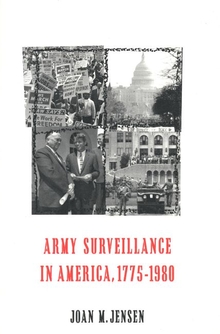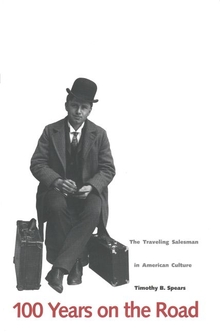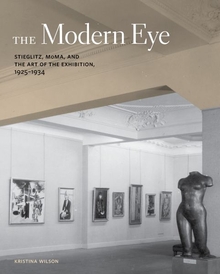Army Surveillance in America, 1775-1980
WARNING
You are viewing an older version of the Yalebooks website. Please visit out new website with more updated information and a better user experience: https://www.yalebooks.com
Joan M. Jensen
"This is an important book, original in its interpretation, and revealing in its scope."—Paul L. Murphy, University of Minnesota
"A dense and well-detailed history of army surveillance that throws light on a shadowed aspect of our past. . . . The author capably reveals the conflict between politics, security, and policy."—Kirkus Reviews
"The first scholarly attempt to analyze in a historical context how the executive branch for over 200 years frequently has used the army to maintain internal security over the civilian population. . . . Highly recommended."—Library Journal
"From the times of George Washington through J. Edgar Hoover and the latter's use of FBI surveillance of civil rights activists and war protestors, Jensen relates a detailed description of military watching. Her descriptions of the invisible intelligence organization that spied on civilians from the American Revolution tot he 1980s will both shock and amaze you. Recommended."—Morse Press-News
"Had an epic sweep and purpose—namely, to explain how a nation born with a deep distrust of centralized power in general and military power in particular evolved into a national security state complete with contingency plans for warfare against American civilians."—Kenneth Cmiel, Journal of American History
"Ever since George Orwell alerted us more than 40 years ago, we've been aware of the possibility that Big Brother was watching us. What many of us didn't know was that Big Brother might be dressed in khaki and green. . . . In Army Surveillance in America, 1775-1980, Jensen . . . details the tug-of-war between this country's traditional antipathy to interference in domestic affairs by the military and the actuality of Army surveillance of foreigners, immigrants, radicals, dissidents, pacifists, civil rights activists, labor leaders, reformers, do-gooders and anyone else deemed to be a potential enemy or troublemaker. . . . [A] well-researched, informative volume."—Marc Schogol, Philadelphia Inquirer
"A cleanly written, well-researched scholarly study."—Marc Leepson, The Veteran
"[A] useful monograph. . . . Jensen has written a volume which is important for the historian."—Paul A. C. Koistinen, Reviews in American History
"Since no existing survey matches what she has done, her work fills a significant void. In pursuing her subject, the author has done extensive work in primary sources."—Review of American History
"A book which professional soldiers and interested civilians can read with profit."—Edward M. Coffman, Parameters
"No other major monograph attempts to study military surveillance over a sustained time period, and for that reason this is a valuable work. The author's broad archival research . . . is particularly notable. . . . This volume is highly recommended, especially for libraries in universities which have a graduate program in History."—John T. O'Connor, Journal of Military History
"A well-conceived account of the U.S. Army's attempts to protect Americans from other Americans. . . . [An] engrossing study of the government's two hundred-year legacy of using the army to spy on the civilian population."—Paul D. Casdorph, The Historian
Publication Date: September 25, 1991









